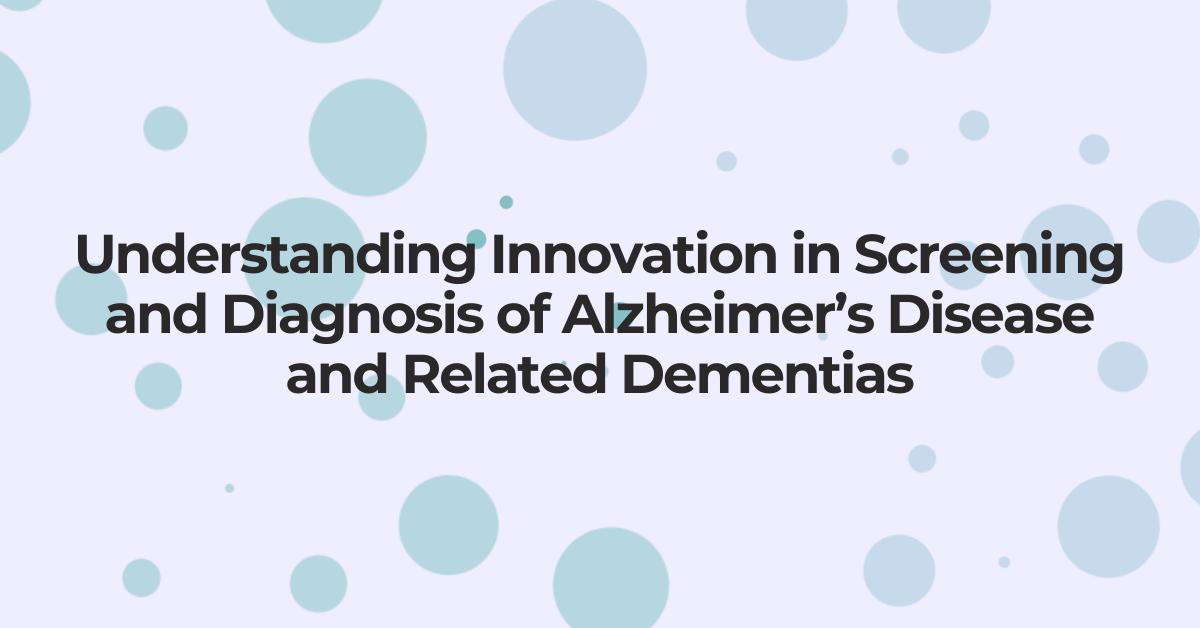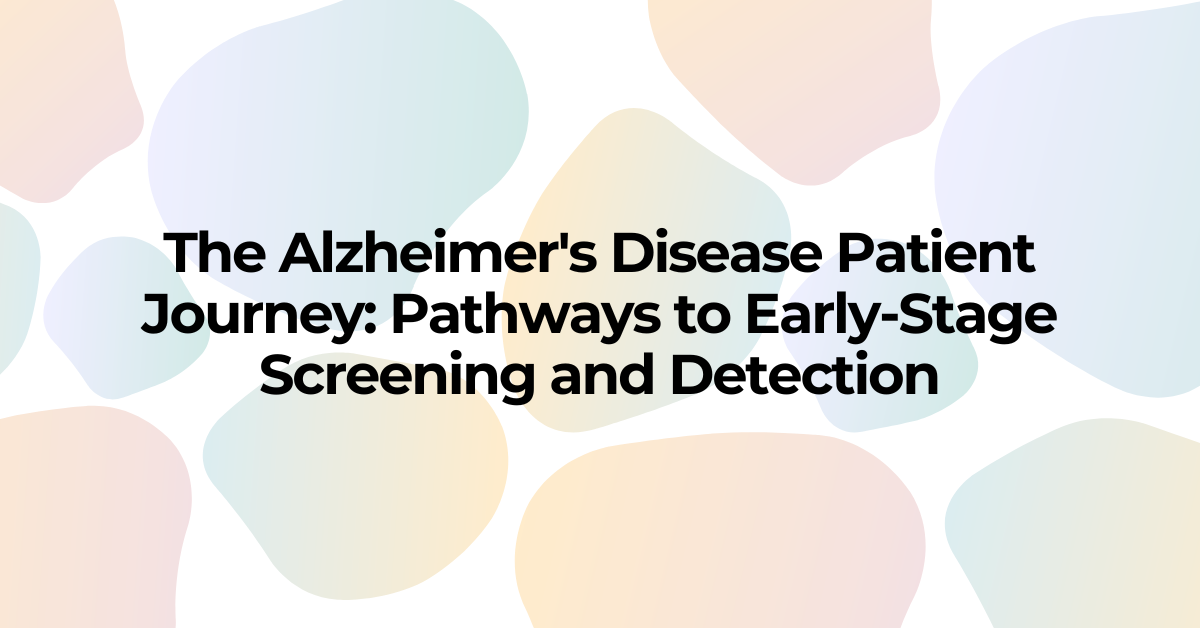The recent approval of new drug therapies not only signals a new era in treatment of Alzheimer’s disease but also underscores the urgent need for innovations that will enable early screening for Mild Cognitive Impairment and accurate detection of all forms of dementia, including complex manifestations of Alzheimer’s disease.
Innovations currently in development or now emerging in the marketplace include a wide variety of tests and tools for cognitive and functional assessment and for biomarkers of disease found within the brain. These innovations may enable health care providers to assess patients more accurately and at a greater scale at a time when both primary care providers and neurologists are under great stress throughout the U.S. health care system.
See below for the panel recording held on April 11, 2024.
Co-Moderator:

Lauren Bedel, MPH
Senior Health Policy and Program Associate
Panelists:

David Bates, Ph.D., CEO, Linus Health
David is the CEO and co-founder of Linus Health. He is a scientist, engineer, inventor, entrepreneur, and investor. David was a founding partner of Tamarisc Ventures and co-founded Bode, a tech-enabled hospitality company for group travel. He is on the board of several technology companies and the philanthropic TMCity Foundation. David has previously held positions at Morningside Ventures, F-Wave, Harvard Medical School, Massachusetts General Hospital, University of Louisville, and Georgia Tech. David earned his Ph.D. in Chemical and Materials Engineering from the University of Auckland and his BS and MSc in Applied Biology from the Georgia Institute of Technology. He resides in Boston with his wife and kids.

Joel Braunstein, MD, CEO, C2N Diagnostics
Dr. Braunstein is the Co-Founder and CEO of C2N Diagnostics and has led the company's growth and commercial efforts since its inception. Dr. Braunstein has played a senior executive role in numerous emerging life sciences companies since 2004. He received his M.D. with Highest Distinction from Northwestern University Medical School in 1996. Subsequently, he trained in internal medicine at the Brigham and Women’s Hospital, Harvard Medical School. He was a Fellow in Cardiovascular Medicine and Robert Wood Johnson National Clinical Scholar at the Johns Hopkins Medical Institutions. Additionally, he completed an MBA focusing on management and health policy and maintained an assistant professorship in cardiology at Johns Hopkins University. In 2010, he was named a Distinguished Alumnus of Johns Hopkins University.

Ian Kremer, JD, Executive Director, LEAD (Leaders Engaged on Alzheimer’s Disease) Coalition
Ian N. Kremer, JD, has worked on federal, state, and local dementia policy since 1996. Since 2012, Kremer has served as Executive Director of the LEAD Coalition (Leaders Engaged on Alzheimer’s Disease: http://www.leadcoalition.org), the uniting voice of over 200 member and allied organizations. The LEAD Coalition accelerates transformational progress in care and support to enrich the quality of life of those with dementia and their caregivers, detection and diagnosis, and research leading to prevention, effective treatment, and cures. The LEAD Coalition has helped to secure historic funding increases for the National Institutes of Health (NIH), expand Medicare services for people with dementia and, protect dementia-relevant components of Medicaid and the Patient Protection and Affordable Care Act, expand the role of people with dementia and their care partners in medical product development, build a nation-wide network of dementia-friendly communities, and worked with a dozen federal agencies to overcome health disparities, clarify regulatory pathways, combat elder abuse, and improve cognitive impairment detection and diagnosis, clinical care, and access to home and community-based services.




